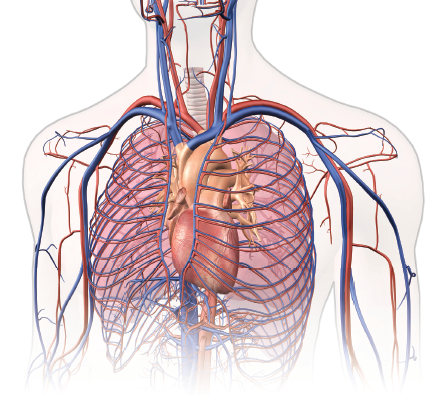How the new regional vascular program is saving lives in Southern New Jersey.

Cardiovascular disease, which encompasses stroke, aneurysms, peripheral vascular disease, and heart disease, is the No. 1 cause of death in the U.S. These conditions are caused primarily by smoking, high cholesterol, high blood pressure, and diabetes.
The keys to survival are early detection and prevention of complications. This requires coordinated, multidisciplinary care by primary care physicians and cardiovascular specialists. Together, they diagnose disease and provide state-of-the-art treatment.
Over the last several years, the RWJBarnabas Health Southern Region has taken steps to deliver high-quality cardiovascular care to residents across Monmouth and Ocean counties. To provide the most comprehensive vascular care in these areas, Randy Shafritz, MD, RPVI, FACS, a board-certified vascular and endovascular surgeon and Associate Professor of Surgery at Rutgers Robert Wood Johnson Medical School, has been appointed Regional Director of Vascular Services for Monmouth Medical Center, Monmouth Medical Center Southern Campus and Community Medical Center. He is also a member of the RWarnabas Health Medical Group.

A Multidisciplinary Approach
The goal of the Regional Vascular Program is to create a Center of Excellence, which involves taking a multidisciplinary approach to treating vascular disease.
Dr. Shafritz is building an expansive network of well-trained physicians and surgeons to specialize in the treatment of vascular diseases. They will have advanced training in the newest technologies, and local residents will have access to world-class expertise and facilities in their own backyard.
Patients will benefit from aggressive screening for early detection of vascular disease; state-of-the-art, noninvasive testing facilities; and pleasant and convenient offices located throughout Monmouth and Ocean counties.
Regional Vascular Program physicians treat a wide range of conditions, including heart disease, carotid artery disease, and stroke, kidney failure, aortic aneurysms, peripheral artery disease, and venous diseases, such as varicose veins and blood clots.
The physicians provide comprehensive, non-invasive diagnostic vascular testing and screening in their outpatient offices and at the Southern Region hospitals. Diagnostic procedures include vascular duplex ultrasound and pulse volume recording. Each of these procedures is performed by a registered vascular technologist and interpreted by vascular surgeons, interventional radiologists, and cardiologists.
An Array of Treatments
Treating vascular disease may involve medications, interventional procedures, surgery, and preventive care. Oftentimes, more than one approach is required, such as interventional and surgical care, physical therapy, and exercise.
Most conditions can now be managed with minimally invasive, or endovascular, procedures, allowing for faster and easier recoveries. They can often be done on an outpatient basis. Physicians perform procedures such as angioplasty, in which blocked arteries are opened using balloons, catheters, and stents; endovenous ablation, or laser treatment of a diseased vein; and aneurysm repairs.
State-of-the-art imaging allows vascular specialists to treat patients with complex cardiovascular issues close to home, with the same level of expertise traditionally found at large university programs.
Your heart doesn’t beat just for you. Get it checked. To learn more, visit Heart and Vascular Care. To reach an RWJBarnabas Health cardiovascular specialist, request an appointment or call (888) 724-7123.